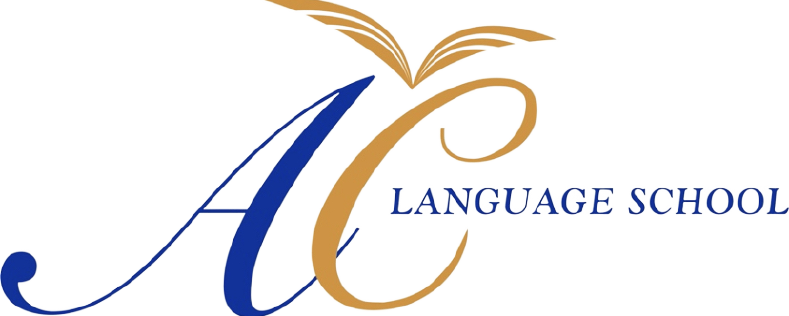

This book developed by ©Academy Global Learning 2020
All rights reserved under ©Academy Global Learning 2020. No part of this publication may be reproduced, stored in a retrieval system, or transmitted in any form or by any means, electronic, mechanical, photocopying, recording, or otherwise, without the prior written permission of the copyright owner.
Designed By:
Christian Alas
Created and illustrated By:
Angelo Romero and Camilo Sanabria

Medicine
Medicine refers to the practice concerned with maintaining or restoring human health through study, diagnosis, and treatment. Physicians, also known as doctors, are the individuals that are qualified and receive approbation to study and practice medicine. Since the 19th century, only those with a medical degree have been considered worthy to practice medicine. Physicians are some of the most venerated members of society.
– 2 –

– 3 –
The medical profession is composed of the group of people formally trained and authorized to apply medical knowledge. Many countries and legal jurisdictions have regulations on who is permitted to practice medicine. Within the medicine field, there are various specialties, such as family practice, cardiology, neurology, sports medicine, research, or public health.
Human societies have had various systems of health care practice since the beginning of recorded history. The earliest type of medicine in most cultures was the use of plants, herbs, and animal parts. This medicine was usually used in conjunction with specious rituals of various kinds. Some of these apocryphal beliefs include animism (the belief that inanimate objects have spirits), spiritualism (appealing to gods or communion with ancestor spirits), and shamanism (vesting an individual with mystic powers).
– 4 –

– 5 –
Medicine, as it is practiced today, developed largely in the late eighteenth century, and early nineteenth century in England, Germany, and France. Even today, there are still many different viewpoints concerning the proper application of medicine.
Sometimes, when it is disputable which opinion is right or better than another, experts may belittle and deride each other which can leave many people feeling acrimonious. However, most doctors today are viewed with deference because of their prestigious position in society. Many people would trade places to be in a doctor’s shoes.
Many physicians are so easygoing and casual that their attitude belies the dedication and effort put forth to take care of patients. Some doctors are so good that they receive adulation and acclaim in the form of accolades for their work
– 6 –
Some doctors are experts in their field and are extolled for it. However if an unfortunate calumny were to spread, all of this can be taken away in a second. The field of medicine is constantly changing and new theories and ideas are constantly being tested. Many new findings are deprecated or denounced if they seem too absurd and do not have adequate support.

– 7 –
So, although rare, some reports may even be embellished or fabricated in order to gain approval from the medical field. These spurious documents are usually quickly exposed. Gossip in the field of medicine can spread like wildfire if a promising new advancement is discovered.
A vital aspect of medicine is the relationship between the patient and doctor. Although many people visit the doctor’s office for similar problems such as a cold, flu, shots and others, their experiences can be vastly different, depending on the attitude of the doctor. Sometimes the doctor’s attitude can make the difference in the visit being fun or painful.
Doctors should always be tolerant and helpful towards their patients, never using caustic remarks to disparage the ones they should be helping.
– 8 –
The patients don’t necessarily have to exalt their doctor and sometimes if a doctor makes a serious mistake, the patient may go off on a diatribe and impugn the doctor.
The physicians that are caring and understanding are usually the ones that are commended and eulogized. Unfortunately, sometimes doctors have to break bad news to patients. It is a difficult task, but the worst thing a doctor could do is equivocate. Any kind of attempt to prevaricate will inevitably have drastic consequences. Honesty is vital to the doctor-patient relationship.

– 9 –
Vocabulary
Match each word in the left column with a description in the right column that best matches its meaning
|
1. ____ Acrimonious |
A. Denounce, criticize, condemn |
– 10 –
|
8. ____ Disparage |
I. Adoration, admiration, reverence |
– 11 –
Vocabulary
Match each word in the left column with a description in the right column that best matches its meaning
|
16. ____ Deference |
A. False, sham, erroneous |
– 12 –
|
24. ____ Embellish |
I. Respect, reverence |
– 13 –
Multiple Choice
|
1. Medicine refers to the practice concerned with maintaining or restoring human health through: |
|
2. Another word for “Doctor” is: |
– 14 –
|
3. The following are sub-branches of the medicine field except: |
|
4. Doctors receive ________ to study and practice medicine. |
|
5. The earliest type of medicine in most cultures was the use of A. Dirt and water |
– 15 –
True or False
Choose whether each statement is true or false and write your answer in the space provided.
|
1. ____ Within the medicine field, there are various specialties |
– 16 –
True or False
Choose whether each statement is true or false and write your answer in the space provided.
|
5. ____ The field of medicine remains constant and has few changes in practice or new theories. |
– 17 –
Short Answer
|
1. Discuss some of the early types of medicine and beliefs that were practiced ______________________________________ |
|
2. Explain the Doctor-patient relationship and why it is vital. ______________________________________ |
– 18 –
|
3. Who can practice medicine and what is necessary to do so?. ______________________________________ |
|
4. Why is the practice of medicine so essential to our society? ______________________________________ |
– 19 –
Reading Questions
|
1. What is the writer’s main idea? ______________________________________ |
|
2. What example supports the writer’s main idea? ______________________________________ |
– 20 –
|
3. How does the example help the writer’s argument? ______________________________________ |
|
4. What do you think about the story? ______________________________________ |
– 21 –



 HS – ESL3 – Unit 21 – Tuskegee Airmen – Moodle
HS – ESL3 – Unit 21 – Tuskegee Airmen – Moodle  HS – ESL3– Unit 20 – Korea – Moodle
HS – ESL3– Unit 20 – Korea – Moodle  HS – ESL3 – Unit 19 – Treaty of Versailles – Moodle
HS – ESL3 – Unit 19 – Treaty of Versailles – Moodle  HS – ESL 3 – Unit 18 – The Vietnam War – Moodle
HS – ESL 3 – Unit 18 – The Vietnam War – Moodle  HS – ESL3 – Unit 17 – Mustang– Moodle
HS – ESL3 – Unit 17 – Mustang– Moodle  HS – ESL3 – Unit 16 – Reading – Moodle
HS – ESL3 – Unit 16 – Reading – Moodle  HS – ESL3 – Unit 15 – Vincent Van Gogh– Moodle
HS – ESL3 – Unit 15 – Vincent Van Gogh– Moodle  HS – ESL3 – Unit 14 – Penguins – Moodle
HS – ESL3 – Unit 14 – Penguins – Moodle  HS – ESL3 – Unit 12 – The American Red Cross– Moodle
HS – ESL3 – Unit 12 – The American Red Cross– Moodle  HS – ESL3 – Unit 11 – Paris – Moodle
HS – ESL3 – Unit 11 – Paris – Moodle  Penguins | Ukrainian
Penguins | Ukrainian  Penguins | Estonian
Penguins | Estonian  Penguins | Turkmen
Penguins | Turkmen  Robots | Ukrainian
Robots | Ukrainian  Robotid | Estonian
Robotid | Estonian  Robots | Turkmen | 2025
Robots | Turkmen | 2025  Unit 1 – Maïs – French – Beginning
Unit 1 – Maïs – French – Beginning  Planeta – Unidad 1 – Español – Advanced
Planeta – Unidad 1 – Español – Advanced